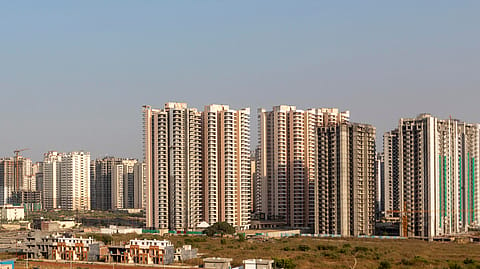Rents soar across Indian metros as Bengaluru and Pune see double-digit hikes, claims report
The rental market in India’s metros is witnessing a sharp upward trend, with a remarkable average hike of 10% in the past quarter, according to Magicbricks’ latest Rent Index report.

The rental market in India’s metros is witnessing a sharp upward trend, with a remarkable average hike of 10% in the past quarter, according to property platform Magicbricks’ latest Rent Index report. The surge is most pronounced in Bengaluru and Pune, which recorded increases of 15.7% and 12.5%, respectively. In contrast, the NCR markets of Noida, Greater Noida, and Gurugram showed moderated rental growth, hinting at early signs of demand stabilisation.
Metros That Are Feeling the Heat
Cities like Mumbai and Bengaluru continue to be rental hotspots, with significant increases in average rents. A 1,000 sq. ft. home in Mumbai now averages ₹98,431, compared to ₹89,313 in the previous quarter. Bengaluru follows with an average rent of ₹36,772, up from ₹31,787. Even traditionally affordable cities like Ahmedabad have seen notable hikes, with rents rising from ₹19,798 to ₹21,807.
Evolving Tenant Preferences
The report highlights significant shifts in tenant preferences across cities. Premium rental markets like Mumbai (43% demand), Gurugram (37%), and Bengaluru (26%) are dominated by tenants seeking properties in the ₹50,000–₹1,00,000 per month range. On the other hand, cities like Ahmedabad (49%) and Pune (38%) cater largely to the ₹20,000–₹30,000 per month segment.
In Greater Noida, affordability remains paramount, with 86% of rental demand focused on properties priced between ₹10,000–₹20,000 per month, despite a 13.3% decline in rental demand in the last quarter.
A Boost for Rental Yields
Rental yields are also showing steady improvement, making the sector increasingly attractive for investors. Ahmedabad leads the way with gross rental yields rising from 3.6% in Q1 2024 to 4.2% in Q1 2025. Other cities like Bengaluru (3.8%), Hyderabad (3.7%), and Mumbai (3.9%) are also witnessing upward trends, further cementing the sector’s growth potential.
What’s Driving the Surge?
The surge in rental prices is driven by a combination of factors, including increased migration to urban centres in the post-COVID-19 era, reflecting the renewed appeal of city living. Additionally, there is a growing demand for premium rental properties in key metros, highlighting evolving tenant preferences. Contributing further to this trend are easing geopolitical concerns and stable macroeconomic conditions, which have bolstered confidence in urban housing markets.
Magicbricks’ CEO noted, “The surge in rental prices underscores the dynamic evolution of India’s urban housing market. While steep hikes might raise affordability concerns, it also highlights growing confidence in urban centres as hubs of opportunity and growth.”